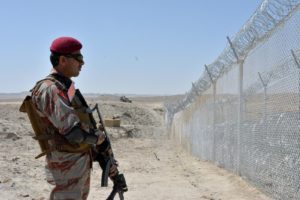Russia’s invasion of Ukraine has sparked a new degree of Western retaliation for a conflict of this scale. Rather than responding militarily, the North Atlantic Treaty Organization (NATO) and the European Union (EU) have imposed mass economic sanctions on Russia for the last two weeks. A devaluation of Russia’s currency, an unprecedented withdrawal of foreign direct investment, or even a critical imbalance of trade are guaranteed to hit Russia’s economy following these sanctions – and the consequences are already materializing.
Despite the evident economic effects of the democratic world’s response, the sanctions’ real impact on the severity of the war remains uncertain. Can these policies harm Russia to an extent where war becomes excessively costly? If so, can they bring an end to this conflict?
Current Situation
Collectively, the sanctions imposed by NATO and EU member states target Russia’s central bank and banking sector. Their objective is to cut off Russia’s access to international banking and financial systems, weakening the Russian Ruble and raising economic pressures on Moscow. Such an approach can cause instability and – as recently observed – introduce paranoia and fear at the highest levels of the Russian state structure. For example, Russian President Vladimir Putin has begun fearing assassination, and has been accused of faking speeches on the Internet.
Notable sanctions involved the freezing of Russian Central Bank Assets held abroad, the alienation of Russia from the SWIFT banking system, and the prohibition of transactions with the Russian central bank. The effects of these measures were almost immediate. Since February 27, the Russian Ruble has lost around 35% of its value.
However, it must be noted that the most severe consequences of these sanctions will affect the general Russian population to a greater extent than its elite. A provisional extreme shortage of imported goods, coupled with an unimaginable rise in prices, make inflation rates and poverty levels bound to skyrocket. It is also important to note that Russian oligarchs primarily place their wealth in offshore accounts, as revealed by the Pandora Papers.
Analysis
The effectiveness of these relatively drastic measures in preventing further escalations in Ukraine is entirely unpredictable.
Many political scientists and economists argue that Russia is a contemporary superpower solely due to its military might. With an economy weaker than Spain’s (prior to the sanctions), Russia’s forms of soft power have been limited. Notwithstanding, its advanced military arsenal – which includes nuclear weapons – enables Russia to dominate discussions at a diplomatic level and on a global scale.
Consequently, the West avoids military retaliation, fearing a more globalized war. Many criticize NATO and the EU for not integrating Ukraine into their organizations. Yet, it is important to note that such action would legally bind member states to send their troops to Ukraine, likely leading to irreversible damages to global stability. Members of those organizations may not be willing to face that responsibility.
As a result, economic sanctions can seem like the logical alternative. Considering that sanctions of this severity have never been observed in modern politics, the response may seem adequate. More crucially, however, the political structure of Russia should be taken into account. The conflict is bound to have catastrophic economic repercussions on highly influential Russian elites, who are likely to express their discontent about the war, putting the Russian President’s legitimacy in danger.
Nonetheless, more serious political effects may have yet to come. So far, Western sanctions have mostly hit the general Russian population, perhaps in hopes of stirring up protest. However, Russian history suggests this approach would only be successful if Russia’s relatively repressive police force were to turn against its government.
On a global scale, the economic sanctions placed on Russia will have ripple effects across the globe. In particular, rises in natural gas and oil prices have taken a toll on Western economies. Yet, due to their greater size, these economies will bear less of the costs than Russia. Though Putin seems driven to conquer Ukraine, there is an objective incentive for Russia’s leadership to stop its actions before reaching an economic point of no return.
During IE University’s “Conflict in Ukraine: A Discussion with the IE Community” on March 3, many Russian students pointed out that the financial burden placed on the general Russian population may increase ‘anti-western’ sentiment in Russia. They argued that this would lead to additional groups in Russia supporting the invasion. Similarly, higher living costs in the West may lead to western citizens protesting their country’s involvement in Ukraine.
In essence, economic sanctions are working. They may not directly halt the conflict, yet they will harm Russia. For now, this approach is discernibly affecting the general Russian population more than its elite, but the West considers sanctions to be an effective way to disincentivize further escalations without leading to full-scale, international war.






